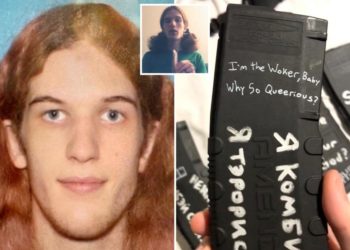A court has yet to set a date for delivering a verdict against the city’s , despite . The court only said that both parties will be informed “in good time.” Previously, the judges indicated a verdict might come in October.
The 77-year-old defendant was arrested in 2020 following . He has been held in custody ever since. Lai’s Apple Daily newspaper was forced to close in 2021. During his trial, Lai faced charges of “colluding with foreign forces” and “publishing seditious materials.”
Appeal still possible
Eric Lai, a research fellow at Georgetown Center for Asian Law (GCAL), told DW the Hong Kong court usually takes months to deliver a written verdict before holding a separate mitigation hearing.
“We will also need to see whether Jimmy Lai will appeal against his conviction and sentence,” he added.
How did Jimmy Lai become a problem for Beijing?
Lai, whose net worth was at one time valued at $1.2 billion (€1 billion), is seen as following .
During the city-wide protests, was critical of both Hong Kong and Beijing authorities, becoming a key news source for local and international readers.
After his arrest in 2020, Lai was sentenced to five years and nine months in prison for fraud related to the lease of Apple Daily‘s headquarters. He could also face a life sentence if convicted in the ongoing national security trial.
What was said in closing arguments?
In closing arguments, prosecutors cited 161 Apple Daily articles published during the 2019 protests, accusing Lai of conspiring to lobby for foreign sanctions against and Hong Kong, and continuing to do so after took effect — a claim the defense denied, saying Lai’s actions occurred before the law went into effect.
Defense lawyer Robert Pang argued the articles merely reflected widespread public concern over the controversial extradition bill, which many Hong Kongers viewed as unnecessary and imposed despite strong opposition in the city.
The prosecution also cited Lai’s public comments, Twitter posts, and his “Live Chat” program with foreign officials, claiming these together amounted to soliciting foreign intervention and punishment of China.
Lai’s legal team defended his actions as exercises of free speech, which should not automatically be interpreted as criminal acts simply because they were critical or attracted foreign attention.
Hong Kong sliding on press freedom
The trial highlights an erosion of press freedom in Hong Kong. Beijing has , despite pledging to give it a high degree of autonomy ahead of the 1997 handover.
In May 2025, Hong Kong tumbled five places in the annual Reporters Without Borders (RSF) Press Freedom Index, entering the “red zone” for the very first time. The zone represents a “very serious” situation for the media, and Hong Kong now shares this label with mainland China.
Several foreign journalists have since been denied visa renewals without explanation, according to the city’s press club.
“I’m not very optimistic that the judges would treat fundamental rights like press freedom above the security of the government or of the regime at all,” researcher Eric Lai told DW.
Mark Clifford, author of a newly published biography of Jimmy Lai and former editor-in-chief of the South China Morning Post, said local coverage of Lai’s trial “is very, very careful.”
“I think journalists are scared,” he said.
US leader Trump, UK PM Starmer pledge to help Jimmy Lai
The fact that Lai is a British citizen has added to the condemnation from Western governments and human rights groups over his trial.
US President said he was committed to helping free Jimmy Lai from prison in Hong Kong, vowing to “do everything I can” to save him.
British Prime Minister Keir Starmer has also stated that securing the release of Jimmy Lai is a “priority” for his government and has raised concerns about Lai’s health and treatment in Hong Kong.
But researcher Eric Lai noted a lack of “substantive actions” from foreign leaders.
“It may be too early to judge whether external factors are being helpful or being counterproductive,” he told DW, adding that governments are more likely to respond after a sentence is announced.
In turn, Clifford characterized the case as “a political trial” that may have to “be resolved through political means.”
“The democratic movement [in Hong Kong] has been broken. I think China can ease off and it should ease off, if it wants Hong Kong to play an important role, again, as a global financial center,” he told DW.
‘They didn’t break him’
Lai has reportedly spent nearly 1,700 days in solitary confinement, sparking concern for his health given his diabetes and recent heart problems.
Closing arguments have been delayed twice, first due to bad weather and then because Lai was experiencing heart palpitations. The judges wanted him to secure a heart monitor and medication before proceeding with the trial.
The Hong Kong government, however, said a medical checkup found no abnormalities and that the care provided in custody was adequate.
Clifford, who has known Lai for more than 30 years, told DW: “I can’t pretend that he’s doing great. But he’s hanging in there.”
The former South China Morning Post editor said he stopped writing to Lai due to concerns that contact between the two might jeopardize the legal case.
But “from what I hear indirectly, he’s still tough. They didn’t break him,” Clifford said. “He tried to be free even while being physically confined.”
Lai has . During his 52-day testimony in court earlier this year, he maintained that he was exercising free speech and defending Hong Kong’s freedoms.
“I don’t want independence. I want Hong Kong to have the rule of law… freedom under the rule of law,” he told the court.
DW’s correspondent Chia-Chun Yeh contributed to the report.
Edited by Darko Janjevic
The post Hong Kong: What’s next for Jimmy Lai as his trial wraps up? appeared first on Deutsche Welle.




